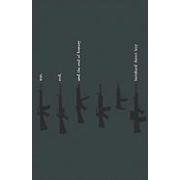On balance, I find the book worthy in so far as it draws parallels between the imperial occupations of the past and those of the present that focus on winning the war but pay no attention to winning the peace. Unfortunately, the book stops precisely where I was hoping it would start: it fails to address the two biggest aspects of winning the peace: a) inter-agency operations that mobilize *all* sources of national power and b) a deliberate concept, doctrine, manning, funding, and capabilities for stabilization and reconstruction, such as the Defense Science Board has recommended and the US Department of Defense is now implementing.
A few notes:
1) The author coins the term “complex peace operations” where the term is not needed–the author means to discuss peace enforcement missions;
2) The author is completely correct and helpful in pointing out that multilateral operations inspire legitimacy, while unilateral operations inspire counterinsurgency;
3) The author focuses on political will with respect to sustained occupation by military forces (we do not have it), but does not engage in what I regard as the more important discussion, which is the need for political will and wit to understand, as General Tony Zinni understands, that the fastest way to reduce violence and restore legitimacy is to introduce water, food, and medicine to the area;
4) The author very helpfully spends time discussing why the German and Japanese reconstruction models are irrelevant to today's failed states;
5) The author praises the military for being able to do humanitarian and other “operations other than war” when the military is well-led and carefully monitored, but misses the larger point that most military professionals and historians will gladly point out: one needs both forces–a big war force put into OOTW operations will lose its skill at big war within two years, while also being incompetent at small war/OOTW for the first two years it is thus engaged;
6) The author suggests, and I believe with good reason based on solid research, that the West is over-reaching when it seeks to impose Western values, Western forms of governance, and even singular governments on ethnic divisions that have stood the test of time–flexibility in accepting multiple forms of self-governance is essential;
7) Finally, and I have seen this myself in Viet-Nam and in El Salvador, and read of it in many other places, the author points out that any time the West intervenes and seeks to select leaders on the basis of its own criteria, it inevitably disregards local realities and ends up creating more friction than it resolves.
The author ends with the suggestion that we focus less on instilling liberal democracies, and more in simply assuring sufficient security such that commerce can be practiced and the arts can flourish.
This is an ably crafted and documented book, but it stops short. It urgently needs a companion volume that collects and integrates lessons from successful interventions. As the book went to press, Haiti was breaking apart for the second time, and I note with interest that the one force that might actually be effective there–the French-speaking French gendarme, is nowhere to be found.
Ten other books as good or better:
The Fifty-Year Wound: How America's Cold War Victory Has Shaped Our World
The Unconquerable World: Power, Nonviolence, and the Will of the People
The Paradox of American Power: Why the World's Only Superpower Can't Go It Alone
Imperial Hubris: Why the West Is Losing the War on Terror
Security Studies for the 21st Century
The Search for Security: A U.S. Grand Strategy for the Twenty-First Century
Modern Strategy
Blessed Unrest: How the Largest Movement in the World Came into Being and Why No One Saw It Coming
The Battle for the Soul of Capitalism: How the Financial System Underminded Social Ideals, Damaged Trust in the Markets, Robbed Investors of Trillions – and What to Do About It
Running on Empty: How the Democratic and Republican Parties Are Bankrupting Our Future and What Americans Can Do About It












